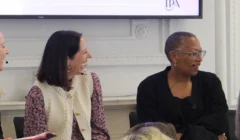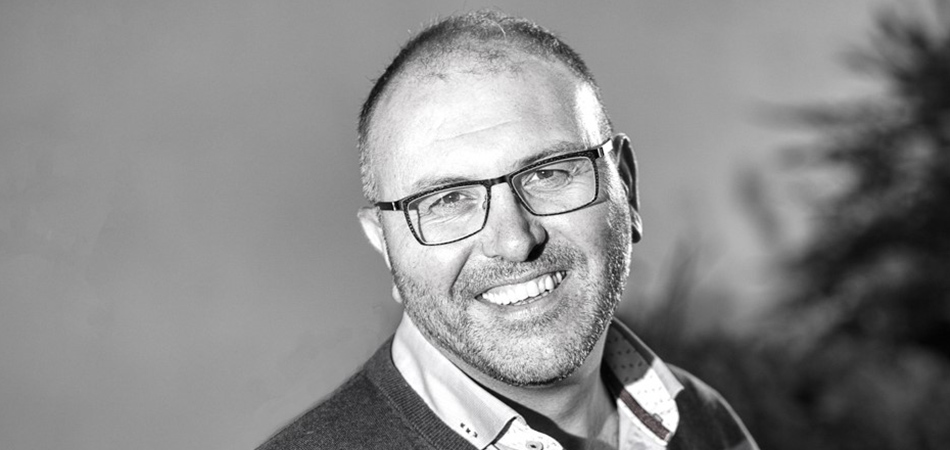
Protecting energy matters
At the IPA’s International Women’s Day Stepping into the Spotlight event industry leaders discuss the importance of protecting energy in polarising times.
“TV's not dead, it's having babies. We've got more screens than we've had before and more demand for content from those screens. And that's going to have a polarising effect."


Career to date:
2017, CEO, TRO
2013, COO EMEA, TRO
2003, Client Services Director, TRO
Michael Wyrley-Birch: Marketing, as we all know, has changed more in the last five years than in the 50 years before that so it’s key for me to be completely forward focused and really listening to our client challenges. We need to innovate our service to meet with those needs. On a more day to day basis, I advise our senior clients on the learnings we can take from one industry to another. I’m very fortunate that, as part of Omnicom, we’ve got colleagues around the world that are very talented. And, as a collective, we can share our learnings and give our clients the best advice possible to meet with those changing times.
Michael Wyrley-Birch: I’d never previously considered marketing when I took a temporary role at TRO doing events. I instantly fell in love with experiential, with the fact that you’re really engaging with people and giving people memories. I’ve been fortunate at TRO because we work with some fantastic brands. Some of the milestones for me were working with Orange right at the beginning, through to relaunching an iconic brand like MINI, through to the 2012 Olympics, onto being part of the team that took TRO into Omnicom, which evolved us from being a UK agency into a global experiential agency. More recently, it’s been about product innovation which reflects the change that we’ve had in the last five years. We’ve set up new divisions and a new consultancy called TRO For Good, which is rooted in purpose-led marketing to disrupt the sponsorship space.
“TV's not dead, it's having babies. We've got more screens than we've had before and more demand for content from those screens. And that's going to have a polarising effect."
Michael Wyrley-Birch: This culture of innovation and change means it’s always exciting. We’re always doing something new, and always being relevant, so I never had a desire to move to another agency. What our teams do day-to-day now has changed so significantly from what we were doing 20 years ago and even what we were doing five years ago. And that’s what’s kept me here, always wanting to be ahead of the curve. We don’t try and mimic other agencies, we try to remain very true to who we are.
All of this is underpinned by our culture. Everybody always says “culture beats process” every time but it really does. We have a set of six values that we are all very proud of. If you go into the office in Milan, Madrid or Manchester you can immediately feel that culture and genuine generosity to each other.
Michael Wyrley-Birch: We launched the adidas ball for the World Cup in Moscow at the end of last year. That was a great piece of work because it was anchored around the brand’s Tango League influencer programme, to generate amazing content. And it ended up being the most viewed live stream on YouTube, more than any other adidas programme or launch that they’d done in the past. In addition to this we also worked with Molson Coors to innovate a traditional approach to a conference. We brought seven different brands together and used our experiential techniques to make really engaging content. What we love doing is taking learnings from one industry, sector or discipline and applying it to another to disrupt it.
Michael Wyrley-Birch: I really liked the Star Wars Empire experience done by The Void. It was a completely immersive experience. For me, immersive marketing is when you can really take someone away to a completely different space and change the way they feel. It can be incredibly powerful. And they did that really well.
Michael Wyrley-Birch: It’s a UK agency but I think they’ve been very influential outside of the UK and that’s Lucky Generals. The work they’ve done to give Amazon personality that’s creatively driven. And we as Brits should be very proud of the work they’re doing internationally.
Michael Wyrley-Birch: The change is just going to accelerate. TV’s not dead, it’s having babies. We’ve got more screens than we’ve had before and more demand for content from those screens. And that’s going to have a polarising effect. We need to drive more content for those screens and the authenticity of that content is going to come more and more into question. Experiential has a huge role to play in being able to create authentic content. The opposite effect is, with all this time on screens we’re seeing craving for digital detoxes. I’ve got a young son who actually, believe it or not, has days where he deliberately goes off his phone.
I believe we can learn a lot from young people in the way they react with or use technology. All this content and screens makes us just viewers and we’re inactive voyeurs of it. Young people use it to enhance their lives. They don’t spend hours researching something, they just put it up on Instagram, ask a question and crowd-source the answer instantly. They’re using it to make their lives simpler and less complicated. They’re far more self-aware and that’s where our marketing will need to go. People are starting to realise that this highly targeted work means they’re living in an echo chamber. There’s going to be a shift away from that because people will say I want to see something genuinely new and decide for myself. I’m not saying digital isn’t going to be at the core of everything we do. It’s just almost like having a balanced diet.
“You don't decide you're going to marry someone from one date, on a complete whim. You go on a series of dates and end up with a much deeper, stronger relationship. It's the same with clients searching for longer-term partners in order to create truly meaningful work."
Michael Wyrley-Birch: Being at the forefront of all that change. For us it’s about making marketing immersive and not interruptive. Marketing that you opt in to. It’s about designing experiences that create genuine feelings, that change your view and behaviour about something long term, not just as a bit of entertainment. And most importantly doing that on scale because you’re not going to have any impact if you’re only doing it to a few thousand people here and there. We need to be doing comms that reach millions.
Michael Wyrley-Birch: It’s about right time, right place right way and having a longer narrative. That’s the ambition. The problem is that we live in a very tactical society where you’re not trying to change a brand opinion over the next 18 months anymore; you’re trying to drive sales in the next quarter. There’s this juxtaposed position where the ambition is you want to do this long term, evolving and changing but the reality is the demand for sales objectives.
Michael Wyrley-Birch: We’ve seen a trend where brands have changed the whole process, for example putting all agencies on a fortnight’s notice. They’re completely disrupting the model with many doing it successfully. I use a dating analogy. You don’t decide you’re going to marry someone from one date, on a complete whim. You go on a series of dates and end up with a much deeper, stronger relationship. It’s the same with clients searching for longer-term partners in order to create truly meaningful work. The most successful pitch process we’ve seen is, you work out how you work together, but sadly, at the moment, the approach seems to be far more price-driven and about the practicalities.
Michael Wyrley-Birch: Elon Musk, because he openly says if you truly believe in something you should do it, even if you think the certain outcome is failure. He’s someone who puts his money where his mouth is and does incredibly big bold things that are transformational.
In society and especially in the western world we just inch along slowly, thinking we’re being transformational but we’re not. I enjoy going to third world countries and learning from there because often the greatest creativity you can find on the side of a road in the middle of nowhere. We know that necessity is the mother of invention. We often look to first world countries for innovation or inspiration, but personally I think you can find more in a little village in Malawi or Thailand.
The trend that we’re focused on is the idea that customers want to know more about the social, economic and environmental impact of brands. How do you evaluate that in the brands you choose to work with? And maybe this has something to do with TRO For Good?
Everybody’s learning their way in this space. We’ve all seen some very bad examples of purpose driven marketing where people have tried to hitch onto a greater purpose to just sell more. It’s not a CSR program. It’s got to be core to what the business is doing, and that is completely fundamental to us when it comes to evaluating who we choose to work with. Take the automotive industry for example, and the way they’re cutting down emissions through driving electric. And in the FMCG sector, you’ve got brands tackling sugar content.
TRO For Good is looking at conscious capitalism. We believe brands should do good through action, without having to buy media telling everybody how good they are. With sponsorship continuing to focus on myopic activations, we believe it’s losing touch with culture and community values. So, TRO For Good is a partnership consultancy for a Purposeful Age, crafting and activating brand partnerships, connecting a brand’s purpose with what its audiences care about.
Looks like you need to create a Creativebrief account to perform this action.
Create account Sign inLooks like you need to create a Creativebrief account to perform this action.
Create account Sign in